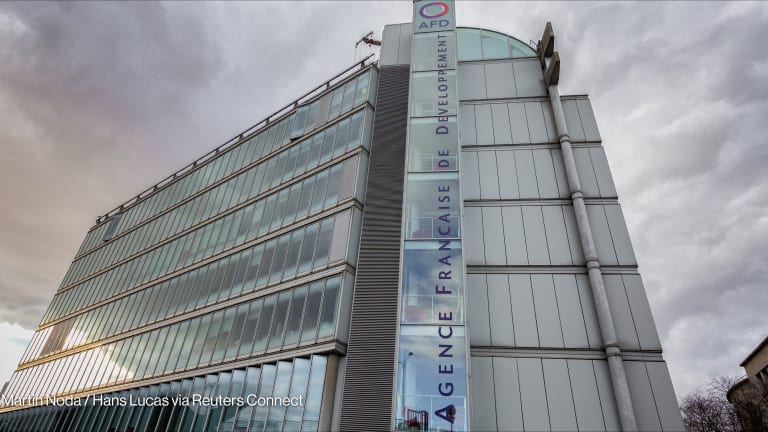
BRUSSELS — European countries are spending too much development assistance at home and too little overall, according to the annual AidWatch report from NGO confederation CONCORD.
The latest edition, published Wednesday, offers a different perspective on the 2017 aid data released by the Organisation for Economic Co-operation and Development. CONCORD argues that spending on refugees and international students within the donor country, tied aid, interest repayments on concessional loans, debt relief, and future interest on cancelled debts should not be counted as official development assistance.
The report found the amount of European aid “inflated” in this way was 19 percent in 2017, or about €14 billion ($16.20 billion), down from 22 percent in 2016. CONCORD attributed the decrease largely to a 10 percent drop in aid spent on refugees in donor countries, and an 82 percent drop in debt relief.
At the current rate, under existing rules, the authors estimate the European Union will officially reach the United Nations target of spending 0.7 percent of gross national income on ODA by 2023. But excluding “inflated” aid, it will not happen until 2057 — five years later than CONCORD’s last estimate.
“I can understand that our data are debatable,” said Luca De Fraia, deputy secretary-general of ActionAid Italy, who worked on the report. “The important thing for us is to provide a better picture of what ODA should be about.”
For CONCORD, this partly means pushing for more support to least-developed countries. “As the EU, we think we are the champion on the 2030 Agenda [for Sustainable Development], and leaving no one behind is a key principle,” De Fraia said. Yet Europe is still well short of the U.N. target of 0.15 percent of GNI going to LDCs by 2020 and 0.20 percent by 2025.
The report found that between 2014-2016, 0.11 percent of ODA from the EU institutions and member states went to LDCs. Only a handful of EU donors, such as Belgium, Ireland, and Sweden, featured seven or more LDCs in their top 10 ODA recipients.
De Fraia said the growing emphasis on private sector investment was partly to blame, as companies are reluctant to invest in risky environments. How to count support to the private sector is one of the topics currently under discussion between the world’s richest donors, including the EU, at the OECD’s Development Assistance Committee in Paris, France.
The EU and its member states collectively remain the world’s largest aid donor, though the report found spending in 2017 was down 4 percent on the previous year — the first decrease in EU aid spending since 2012. Eleven EU countries, including Croatia, France, Malta, Portugal, and Romania, increased their ODA, while 15 states saw their contributions fall, among them Austria and Hungary.
The AidWatch results differed from those reported by member states in the Council of the EU in May, where they noted a 2.4 percent nominal decrease in the EU’s collective ODA. The report’s authors attribute the difference to updated information and the use of constant instead of current prices.
“You will always have the good guys — Luxembourg, Sweden, Denmark, and the U.K. — still reaching 0.7 percent,” De Fraia said. “And you have some countries that are relying really extensively on refugee costs.” For example, he noted that Germany joined the 0.7 percent club in 2016 but dropped out again after its in-country refugee costs fell.
In October last year, DAC clarified that only certain in-donor refugee costs should be counted as ODA. But AidWatch authors argue that “not only did these discussions not address the debate on whether these costs belong in ODA at all, but the guidelines also do not provide a clear-cut methodology on reporting.”
A spokesperson for the European Commission welcomed the AidWatch report, saying: “We are so proud that since 2015, EU collective aid has grown by €7.8 billion. However, whilst EU ODA reached a record level in 2016, it is nonetheless concerning that aid levels have dipped.”
The commission’s proposal for development spending under the next 2021-2027 budget includes several targets, the spokesperson added, “including on human development and social inclusion, including gender, and aims to contribute to the 0.20 percent target to LDCs.”








